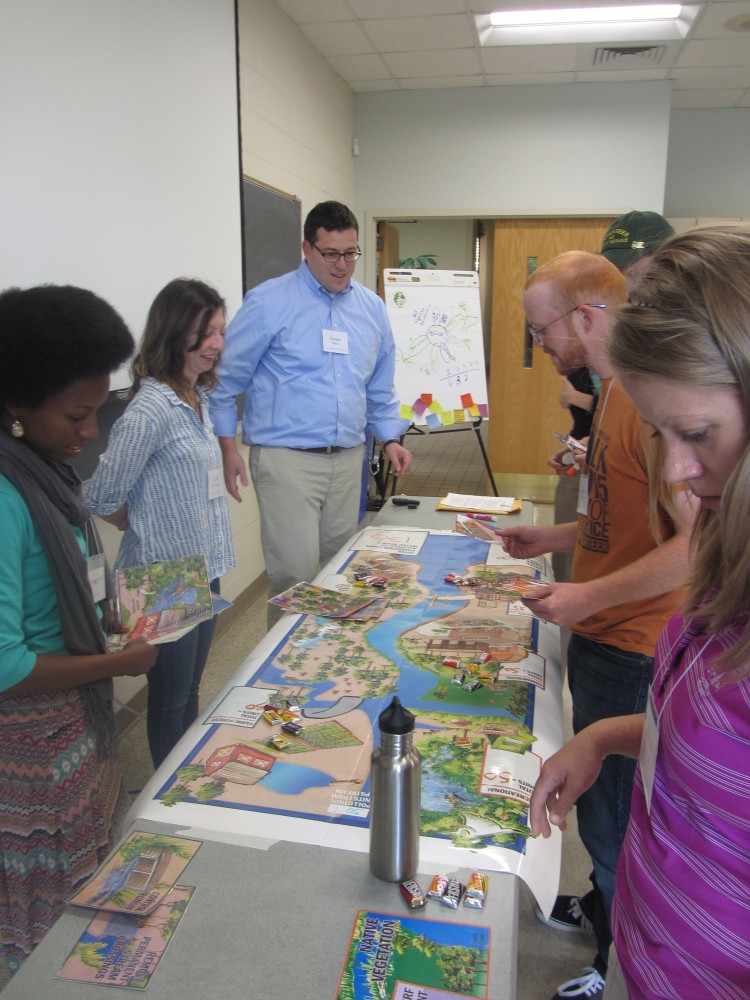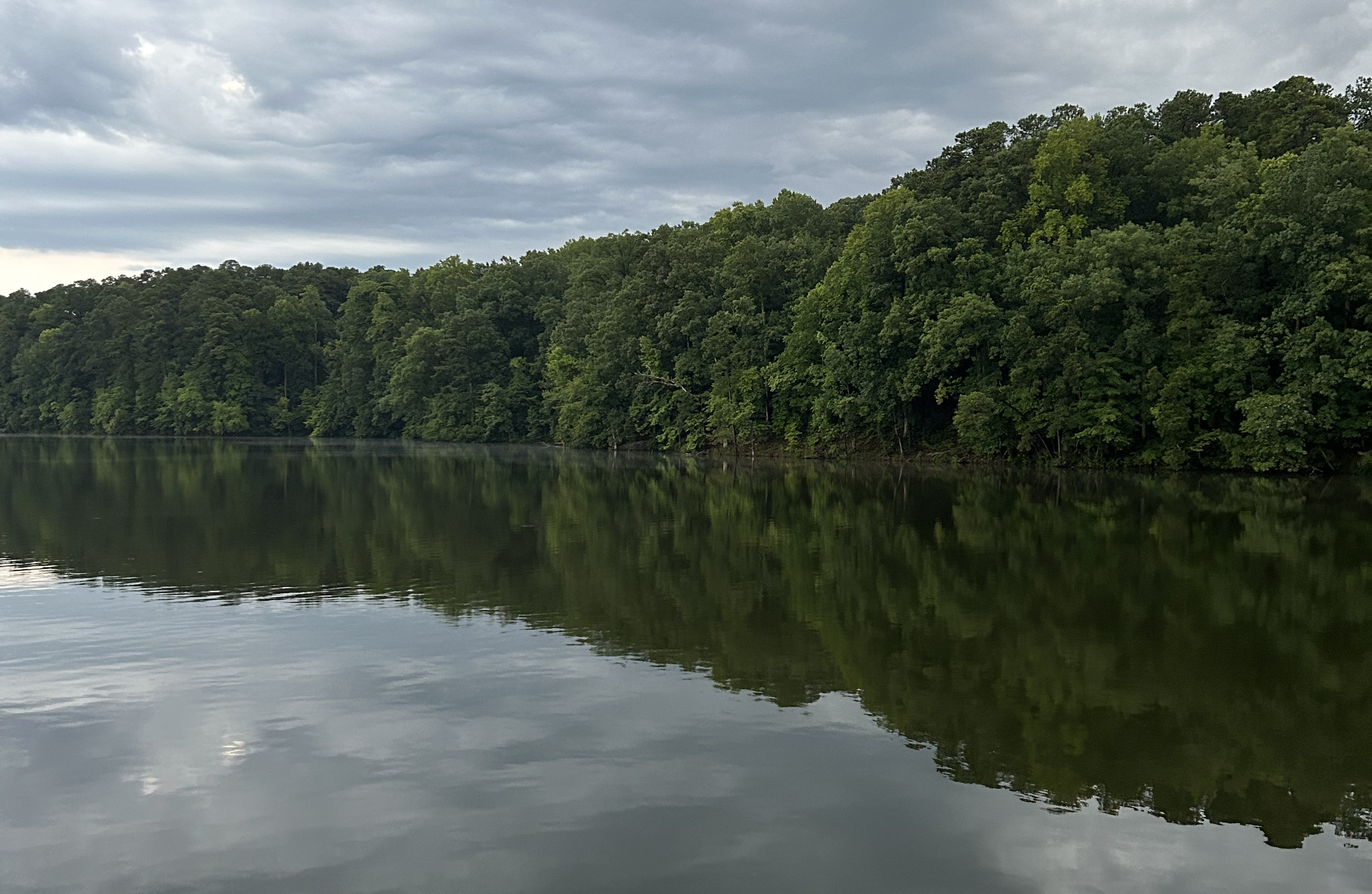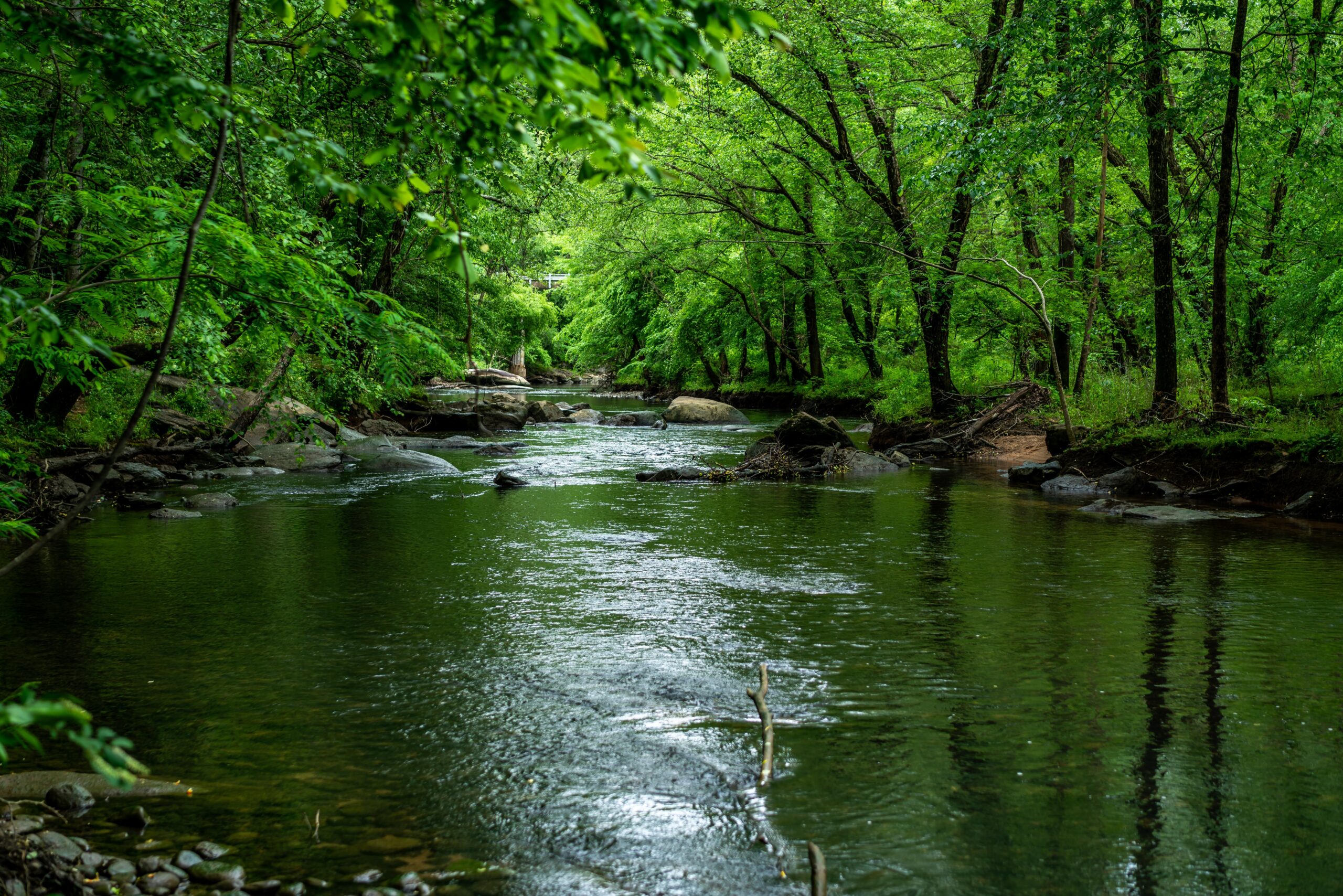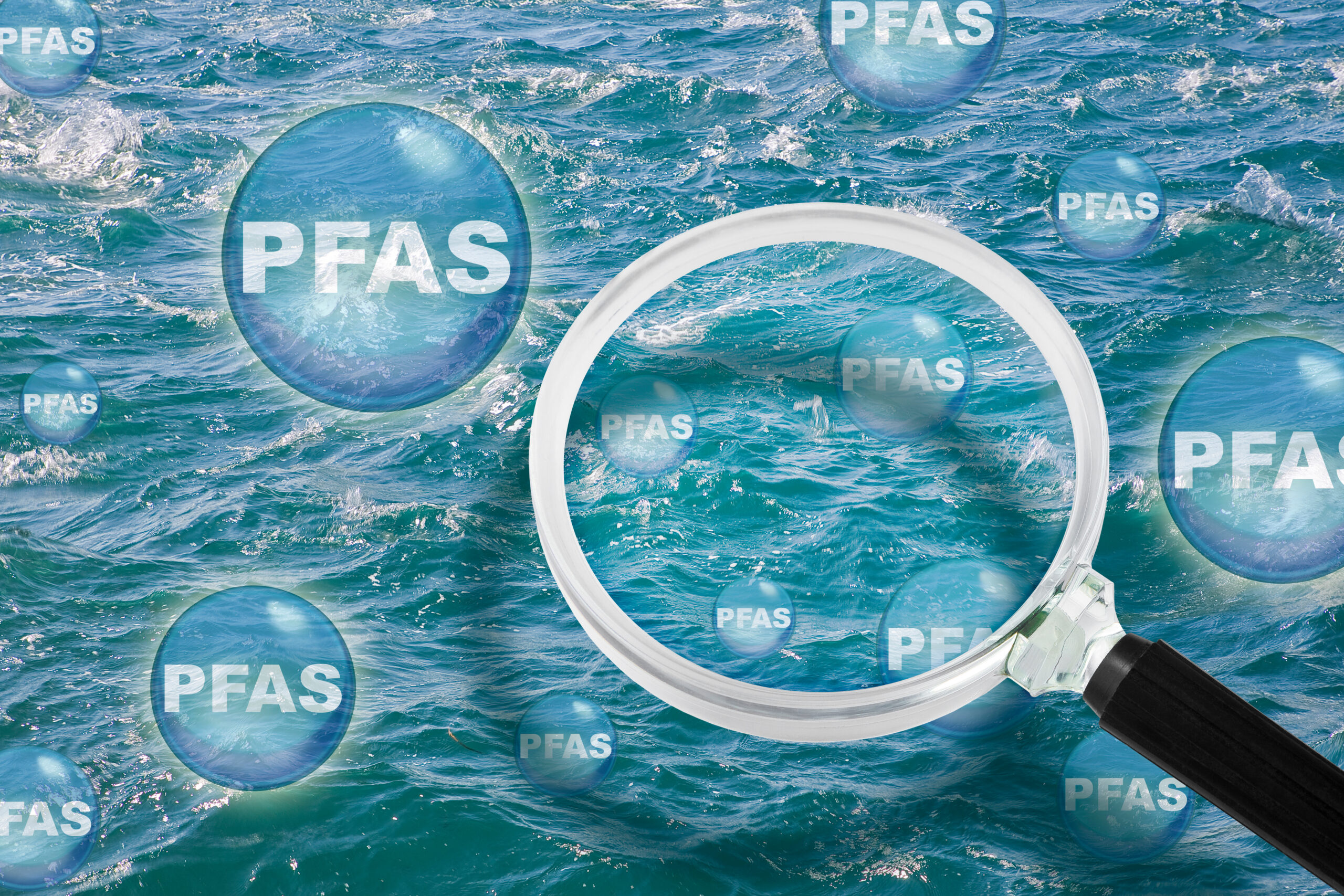Preparing Planners for Watershed Protection

By Christy Perrin, for the Watershed Stewardship Network
Image: Attendees at a NCWSN workshop examine a map of a watershed.
Watershed professionals across North Carolina have an enormous task in trying to manage and protect more than 1700 watersheds of various sizes. The goal of the North Carolina Watershed Stewardship Network is to help them in that work. When these watershed stewards were asked about their needs in a May 2013 survey, they said they needed high quality training and networking opportunities.
To meet this need, NCWSN created Tools of Watershed Management, a two-day professional development workshop for watershed stewards. With funding from Wallace Genetic Foundation, four workshops were offered between December 2015 and June 2016. To reach a broad audience, we offered the workshops at four different locations across the state: Chapel Hill and Salisbury in the Piedmont, Asheville in North Carolina’s Mountains and Kinston in the Coastal Plain region.
In total, 64 people participated in these workshops, which were designed to provide watershed stewards with the resources necessary to lead a watershed planning project. Topics included: Characterizing your watershed, engaging communities, securing funding and implementing a watershed plan. Speakers included watershed professionals from organizations with a statewide reach, such as the NC Department of Environmental Quality, as well individuals who had successfully completed watershed projects in the specific region in which each workshop was held. A watershed planner’s resource guide was created and is available online.
Each participant was surveyed at the end of the workshop, and their feedback has shown that we are meeting their needs. 97% of participants rated the workshop as “Very Good” or “Excellent”, and said that the workshop increased their understanding of the skills needed to implement a watershed plan. Participants told us that some of the most useful aspects of the workshop were the technical expertise, the planning materials provided and the opportunity to network with other local watershed professionals.
“This was an extremely informative experience and a great opportunity to meet other people working on watersheds in our area.”
– Tools of Watershed Management workshop participant
Even with the success of the two-day workshops, it was apparent that we could reach a greater audience if we could offer the same training as separate, smaller modules. Watershed stewards across the state that are at different stages in the planning process and benefit from training focused on their specific stage. For instance, a watershed planner who is just beginning the to develop a watershed plan has different training needs than one who has a completed plan and is just beginning to implement it. So offering shorter, more specific training opens up the possibility of reaching a broader audience.
NCWSN offered its first shorter training, a five-hour workshop titled Using Watershed Plans to Guide Restoration Efforts, as part of the 2016 Ecostream conference in Asheville. This workshop focused on the implementation of a watershed plan and covered topics such as engaging the community in restoration decisions and how to create a nine element plan. Once again, we brought in watershed professionals who have implemented watershed plans to share their successes and challenges with the participants.
The feedback we received from participants was similar to feedback we received on the Tools of Watershed Management workshops and showed we are meeting a need within this community of watershed professionals. On a post-workshop survey, every participant said that the training was a “valuable learning experience”. And given the reach of the Ecostream conference, our workshop provided participants with the opportunity to network with and learn others from across North Carolina and beyond.
So Where Does NCWSN Go From Here?
On October 6, WSN held its fall steering committee meeting and invited local watershed professionals and volunteers. During this meeting, we shared the successes of the workshops and held a discussion on whether we should continue offering these types of workshops. The group decided that continuing this type of training should be a priority for the NCWSN for 2017 and beyond. NCWSN’s Training and Education working group will determine how to continue offering these workshops, or some version of them, in the future.
The 2013 Assessment of Capacity and Resource Needs of North Carolina Watershed Programs was funded by Wallace Genetic Foundation, Water Resources Research Institute of the University of North Carolina and the UNC Institute for the Environment.
The Tools of Watershed Management workshops were funded by Wallace Genetic Foundation.
NC Coastal Federation provided travel stipends to participants attending the Kinston Tools of Watershed Management workshop.
Workshop Leaders Included:
Kevin Boyer, City of Raleigh
Paul Clark, Use Restoration Watershed Program, NC DWR
Michele Drostin, UNC Institute for the Environment
Jane Harrison, NC Sea Grant
George Matthis, River Guardian Foundation
Holly Miller, City of Wake Forest
Grant Parkins, UNC Institute for the Environment
Christy Perrin, Water Resources Research Institute
Gloria Putnam, NC Sea Grant
Megan Rodgers, UNC Institute for the Environment
Eric Romaniszyn, Haywood Waterways Association
Rebecca Sadosky, Drinking water Protection Program, NCDWR
Mike Schlegel, Triangle J Council of Governments
Cy Stober, Drinking Water Protection Program, NCDWR
Nicole Wilkinson, Water Resources Research Institute
- Categories:


